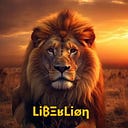Open source is the public availability of a source of information without restriction or conditioning.
The opposite of open source is patent or copyright, whereby a single player has possession of certain information.
This protection of inventions gives the creator the possibility of renting his work. As well as, he could decide to share it reserving his authorship.
In the IT environment, it is usual to share the source code (usually published in GitHub, the most known platform), as a basis for programming different applications.
One of the reasons why applications are published is to be audited, in order to propose improvements. The other reason is to show its transparency in use, since many non-open source applications gather information from users at the expense of privacy.
The patent or copyright is the very centralization of ideas, as opposed to distribution and decentralization, which in these times is proposed with the use of blockchain as a transmission of information.
Let’s suppose that a musician composes a song, if he chooses the current concept, registers his authorship, has copyright for years and nobody can perform that song without his authorization.
But understanding the technology that is being born that brings a change of paradigm, the author will be able to publish that composition in Cardano’s network, with a digital identity, where his authorship will be registered and unchangeable for life.
The people subscribed to the author’s platform will be able to listen to the musical theme in a direct way, without record companies, with lower costs and greater benefit for the musician.
The tones, musical times and notes will be identified by the network.
In case there is a score similar to the one being listened to, the platform will notice that it has a certain percentage of similarity with another song, and will show author and registration date.
It would be valid in this paradigm that other musicians could improve it, or as they would say today, plagiarize it, but its original composer would be known, and the public would be able to choose which of the two authors to follow, if the original or the “imitator”, which might be better.
The public will have a choice with lower costs and better competition. The musicians will also have more incentives.
Today we have the tool that transmits digitized information in a way that is distributed throughout the planet, and accessible to the great majority.
In illustrative terms and without the rigour of scientific technicalities, we could compare the blockchain with DNA, since the latter contains in its chromosomes all the information of the species, and since all cells store DNA, it constitutes a decentralized information network with peer to peer transmission.
Decentralization will be the “center” of the system.
I appreciate your contribution to encourage my articles
₿itcoin
bc1qj8u9ccdn492f3nnuklq3ny3s5kssdye9fwtnks
₳da (Cardano)
addr1qxdlld4mux6gl38860w297lse59m0646v68x6sraw0asp85ml7mthcd53lzw057u5talpngtkl4t5e5wd4q86ulmqz0qskgn43
